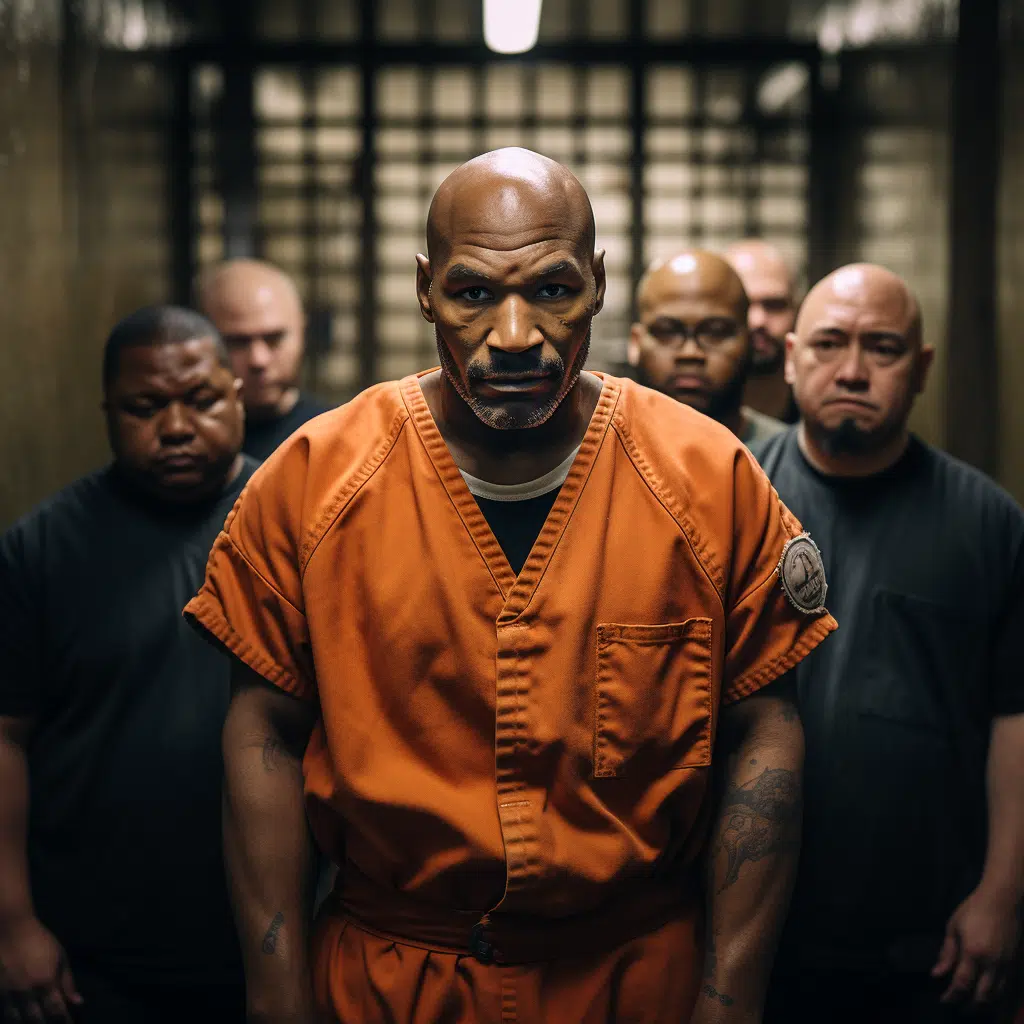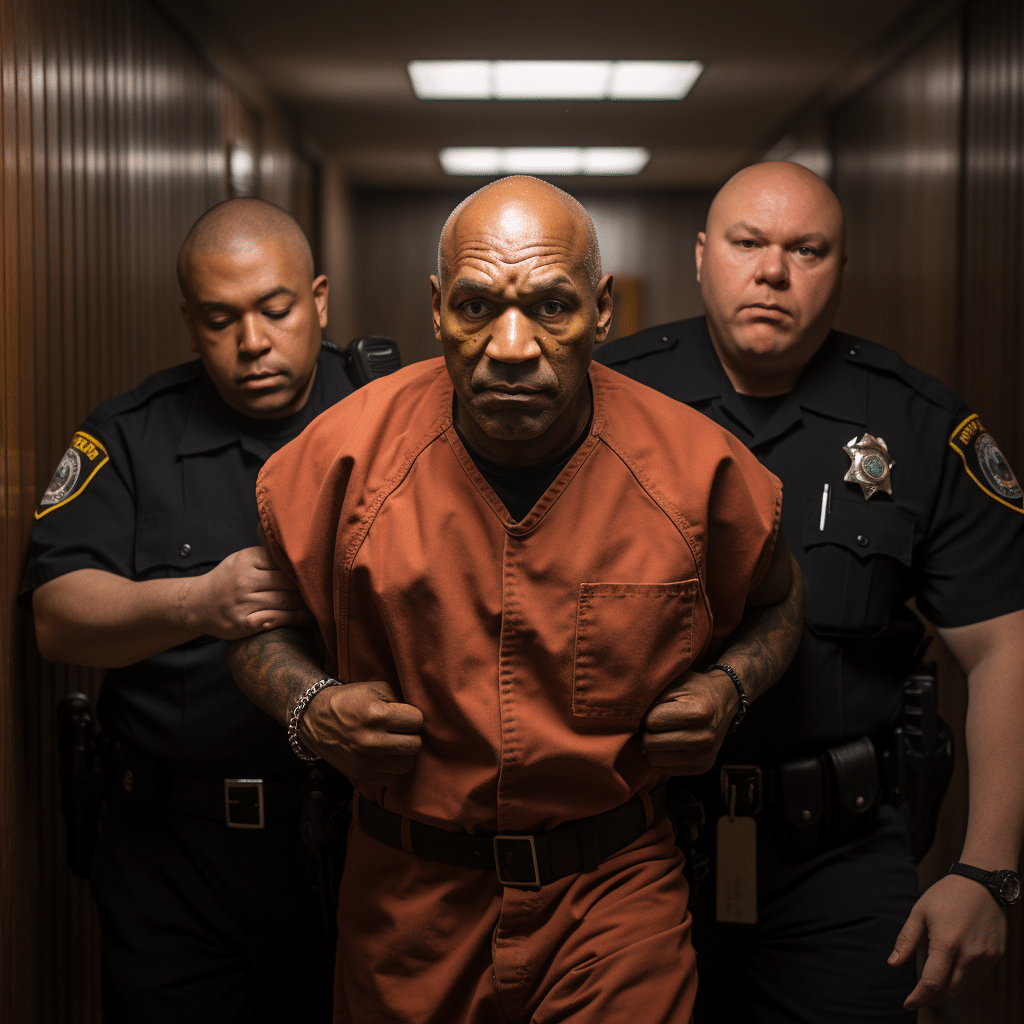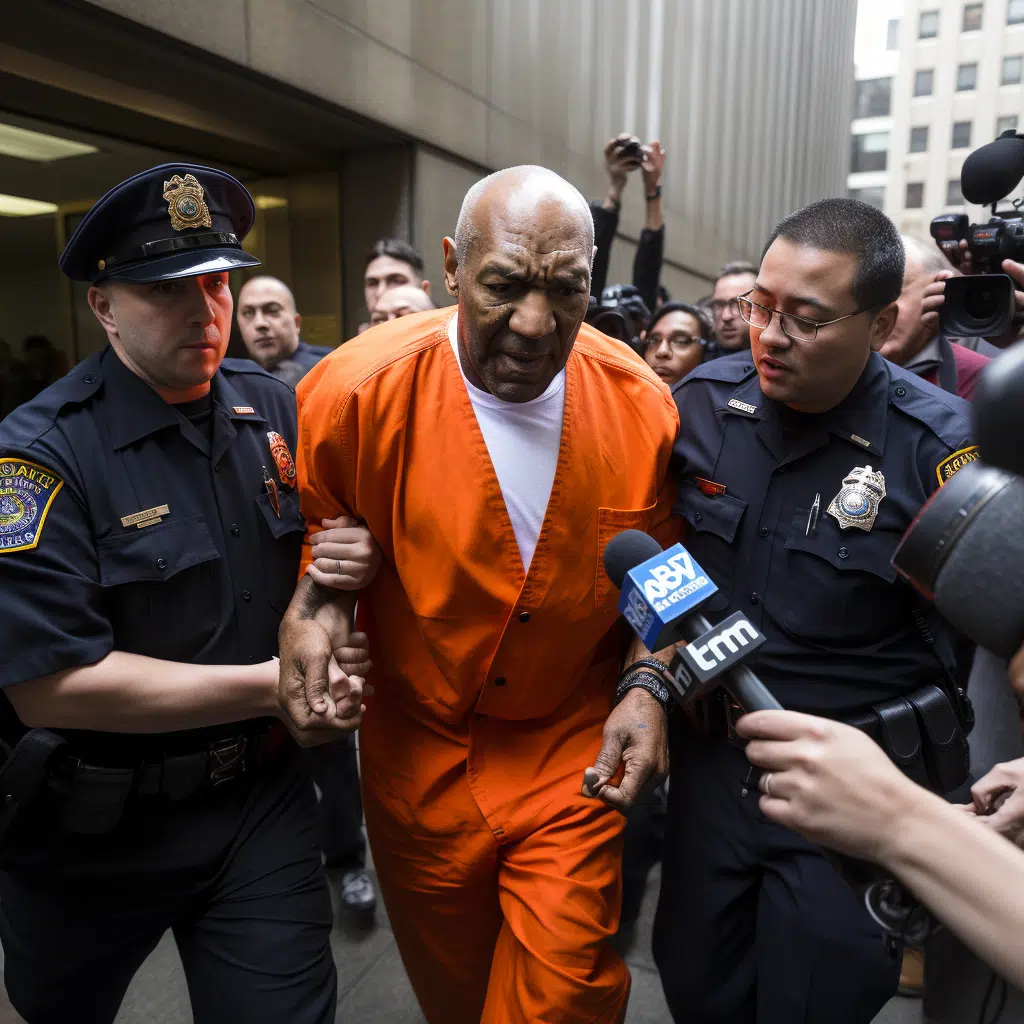Mike Tyson, one of the most iconic boxers in history, has had a career and life filled with both triumphs and controversies. His journey to becoming the youngest heavyweight champion in history was remarkable, but it was also marred by legal troubles that ultimately led to his imprisonment. Understanding why Mike Tyson went to jail requires delving into the complexities of his personal life and the circumstances surrounding the incident.
Tyson's rise to fame was meteoric, but his fall was equally dramatic. The events that unfolded in the early 1990s not only affected his boxing career but also left a lasting impact on his reputation. This article will explore the reasons behind his incarceration, the legal proceedings, and the aftermath, shedding light on one of the most controversial periods in Tyson's life.
By examining the details of the case, we aim to provide a comprehensive understanding of the situation while addressing the questions that have lingered for years. Join us as we uncover the truth behind why Mike Tyson went to jail and how it shaped his life afterward.
Read also:Ryan Oneal The Iconic Journey Of A Hollywood Legend
Table of Contents
- Mike Tyson's Biography
- The Incident That Led to Jail
- The Legal Process
- The Jury's Verdict
- Life in Prison
- Impact on His Boxing Career
- The Aftermath of the Conviction
- Public Opinion and Controversy
- Rehabilitation and Redemption
- Mike Tyson's Legacy
Mike Tyson's Biography
Early Life and Career
Mike Tyson was born on June 30, 1966, in Brooklyn, New York. From a young age, he showed an interest in boxing, which eventually led to a highly successful amateur career. Under the guidance of legendary trainer Cus D'Amato, Tyson honed his skills and developed into a formidable fighter. His professional debut came in 1985, and within three years, he became the youngest heavyweight champion in history.
Below is a summary of Tyson's personal information:
| Full Name | Michael Gerald Tyson |
|---|---|
| Date of Birth | June 30, 1966 |
| Place of Birth | Brooklyn, New York, USA |
| Height | 5'10" (178 cm) |
| Weight | 218 lbs (99 kg) |
The Incident That Led to Jail
In 1992, Mike Tyson was accused of raping Desiree Washington, a beauty pageant contestant, after a party in Indianapolis. The incident occurred in a hotel room, and it quickly became a national headline. Tyson denied the allegations, claiming the encounter was consensual. However, the case gained significant attention due to Tyson's celebrity status and the severity of the accusations.
Details of the Alleged Assault
- The incident took place on June 28, 1992, during a promotional event for Tyson's upcoming fight.
- Desiree Washington stated that Tyson invited her to his hotel room, where the alleged assault occurred.
- Tyson's legal team argued that the encounter was consensual and that Washington had ulterior motives for pressing charges.
The Legal Process
The legal proceedings against Mike Tyson were highly publicized and scrutinized. The case went to trial, and both sides presented their arguments in court. Prosecutors argued that Tyson had used his fame and influence to intimidate and manipulate Washington, while the defense focused on questioning the credibility of the accuser.
Key Evidence Presented
- Medical examinations conducted on Washington supported her claims of non-consensual intercourse.
- Witness testimonies, including those from hotel staff, corroborated Washington's version of events.
- Tyson's defense team presented character witnesses and attempted to cast doubt on Washington's credibility.
The Jury's Verdict
After a lengthy trial, the jury reached a verdict on February 5, 1992. Mike Tyson was found guilty of raping Desiree Washington and was sentenced to six years in prison, with the possibility of parole after three years. The verdict shocked many, as it marked the first time a high-profile athlete had been convicted of such a serious crime.
Factors Influencing the Verdict
- The jury found the evidence presented by the prosecution compelling and credible.
- Tyson's behavior during the trial, including his defiant attitude, may have negatively influenced the jury's perception.
- Public opinion played a significant role, with many people viewing Tyson as a symbol of unchecked power and privilege.
Life in Prison
Mike Tyson's time in prison was transformative. While incarcerated, he faced numerous challenges, including adjusting to life behind bars and dealing with the loss of his boxing career. However, he also used the time to reflect on his life and make positive changes.
Read also:Ronaldo Jr Age Everything You Need To Know About The Young Star
Key Aspects of His Incarceration
- Tyson was sent to the Indiana Department of Correction, where he served three years of his sentence.
- During his time in prison, he engaged in self-reflection and began reading extensively, which contributed to his personal growth.
- He also participated in various programs aimed at rehabilitation and education.
Impact on His Boxing Career
Tyson's imprisonment had a profound impact on his boxing career. His absence from the ring allowed other fighters to rise to prominence, and when he returned, the landscape of professional boxing had changed significantly. Despite his efforts to reclaim his former glory, Tyson struggled to regain his dominance in the sport.
Challenges Upon Returning to Boxing
- Tyson faced difficulties regaining his physical and mental edge after being away from the sport for several years.
- His reputation had been tarnished, making it harder to secure lucrative fights and endorsements.
- He eventually regained his boxing license and returned to the ring, but his later career was marked by inconsistent performances.
The Aftermath of the Conviction
After his release from prison, Tyson faced a long road to redemption. He worked to rebuild his life and career while addressing the public's perception of him. Although he was unable to fully restore his reputation, Tyson's efforts to change demonstrated his resilience and determination.
Steps Towards Redemption
- Tyson publicly apologized for his actions and expressed remorse for the harm he caused.
- He became involved in charitable activities and used his platform to advocate for positive change.
- Through interviews and public appearances, he shared his story as a cautionary tale about the dangers of unchecked behavior.
Public Opinion and Controversy
The case against Mike Tyson sparked intense public debate. Many people viewed him as a victim of circumstances, while others believed he had been justly punished for his actions. The controversy surrounding the case highlighted broader issues related to sexual assault, celebrity privilege, and the justice system.
Public Reaction to the Verdict
- Supporters of Tyson argued that the legal system had unfairly targeted him due to his fame and wealth.
- Others believed the verdict was a necessary step in holding powerful individuals accountable for their actions.
- The case also brought attention to the challenges faced by victims of sexual assault in seeking justice.
Rehabilitation and Redemption
In recent years, Mike Tyson has worked tirelessly to rehabilitate his image and contribute positively to society. Through his public persona and various ventures, he continues to inspire others while addressing the mistakes of his past.
Recent Developments
- Tyson has become a motivational speaker, sharing his experiences and lessons learned with audiences around the world.
- He has also ventured into acting and media, appearing in films and television shows to reach a wider audience.
- His ongoing efforts to make amends and support charitable causes demonstrate his commitment to personal growth and redemption.
Mike Tyson's Legacy
Despite the controversies that have defined parts of his life, Mike Tyson remains one of the most celebrated figures in boxing history. His legacy is a complex mix of triumphs and challenges, but it also serves as a reminder of the importance of accountability and personal growth.
As we reflect on why Mike Tyson went to jail, it is essential to recognize the broader implications of his story. His experiences offer valuable insights into the consequences of unchecked behavior and the potential for redemption.
Conclusion
Mike Tyson's journey from the youngest heavyweight champion in history to a convicted felon and back is a testament to the highs and lows of fame and fortune. Understanding why Mike Tyson went to jail requires examining the circumstances surrounding the incident, the legal proceedings, and the impact on his life and career.
We encourage readers to engage with this article by sharing their thoughts and insights in the comments section. Additionally, explore other articles on our site to learn more about the fascinating world of sports and the individuals who have shaped it. Together, we can continue the conversation and gain a deeper understanding of the complexities of human nature and the pursuit of greatness.


